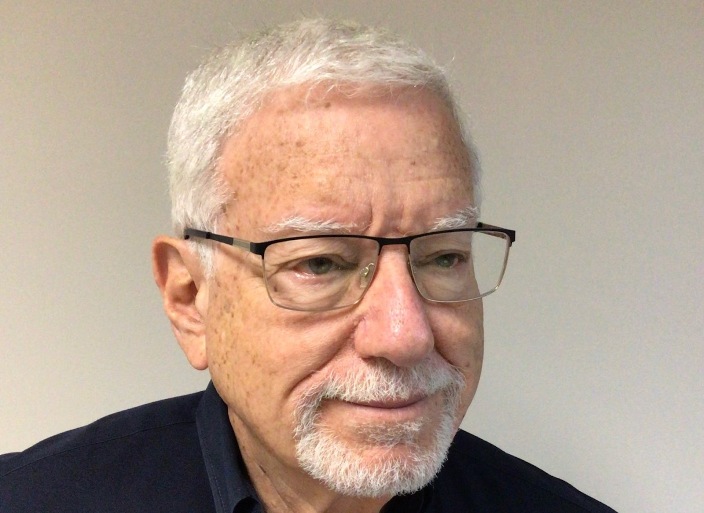
Alan Sher is a researcher at the National Institute of Allergy and Infectious Diseases (USA).
Photo credits: National Institute of Allergy and Infectious Diseases (NIAID)
A leading figure in the modern field of immunoparasitology, Alan Sher, a researcher at the Laboratory of Parasitic Diseases of the National Institute of Allergy and Infectious Diseases in the United States, will be welcomed to UFMG in June as a professor of the FUNDEP/IEAT Chair program.
During his stay at the university, Alan Sher will give the Grand Lecture From schistosomiasis to tuberculosis: mentoring the carrier of young Brazilian scientists on June 11, 2025, at 4:30 p.m., in the auditorium of the UFMG rectory.
Certificates of participation will be issued to those who register on the Even3 platform and sign the attendance list on the day of the event. The lecture will be given in English. The event is free and open to the general public.
In the conference synopsis, Ricardo Gazzinelli, coordinator of the UFMG Vaccine Technology Center (CTVacinas) and host of the professor at UFMG, explains that Alan Sher played a decisive role in understanding how the immune system acts both in protecting against parasitic infections and in the damage it can cause to the body itself when overstimulated.
“His work was fundamental for establishing the dichotomy of CD4+ helper T lymphocytes in living organisms. Alan Sher demonstrated that the formation of hepatic granuloma and the disease caused by Schistosoma mansoni are mediated by Th2 lymphocytes, the same ones involved in allergic responses. In the cutaneous leishmaniasis model, he showed that Th1 and Th2 lymphocytes are responsible, respectively, for resistance and vulnerability to infection. In studies on toxoplasmosis in mice, his group revealed that, although Th1 lymphocytes are essential for protection, the cytokine IL-10, traditionally seen as an immunoregulator, plays a key role in preventing exaggerated inflammatory responses, ensuring an effective defense without collateral damage”, highlights Ricardo Gazzinelli.
Alan Sher is currently focusing his research on the mechanisms of innate resistance to Mycobacterium tuberculosis, the causative agent of most cases of tuberculosis. According to Gazzinelli, by defining the cellular and molecular pathways involved in the induction and regulation of the immune response, these studies have provided new insights relevant to the prevention and treatment of inflammatory diseases of infectious and sterile origin.
Throughout his career, spanning almost 50 years, Alan Sher has collaborated with several scientists in Brazil and played an important role in the training of more than ten young Brazilian researchers, who have become influential scientific leaders. At the conference, Alan Sher will present a brief history of his work and discuss the importance of collaboration between researchers in developing new talent.
Continuing his stay at UFMG, on June 12 and 13, 2025, Alan Sher will be at the Transdisciplinary Symposium: Climate Change, Infectious Diseases and the Immune System 2025, which is organized by CTVacinas, in partnership with Climate Amplified Diseases and Epidemics (Climade), an international consortium led by the southern hemisphere to study and respond to climate-amplified diseases and epidemics.
Scheduled for the auditorium of the UFMG rectory, the Symposium will feature a diverse program, including the participation of internationally renowned specialists and young researchers in the areas of epidemiology, virology, pathology, clinical trials, vaccinology and bioinformatics. The full event schedule is available on the CTVacinas website.
On June 13, 2025, starting at 5:15 p.m., Alan Sher will give the closing lecture of the event on the theme Can the enhancement of cross-protective innate immunity be used to prevent future pandemic? To participate in the event, it is necessary to register on the events and courses page of the UFMG Support Foundation (Fundep).
About the professor
Franklin Alan Sher obtained his doctorate from the University of California, San Diego, in the United States and completed his postdoctoral training in the Division of Parasitology of the National Institute for Medical Research in Mill Hill, London, England. In 1980, after several years as a research associate and later assistant professor in the Department of Pathology at Harvard Medical School, he joined the National Institute of Allergy and Infectious Diseases (NIAID) in the United States as section chief in the Laboratory of Parasitic Diseases (LPD). Sher became chief of the LPD in 2003 and was promoted to NIH Distinguished Investigator in 2011. In June 2022, he ended his laboratory research program to focus primarily on mentoring activities.